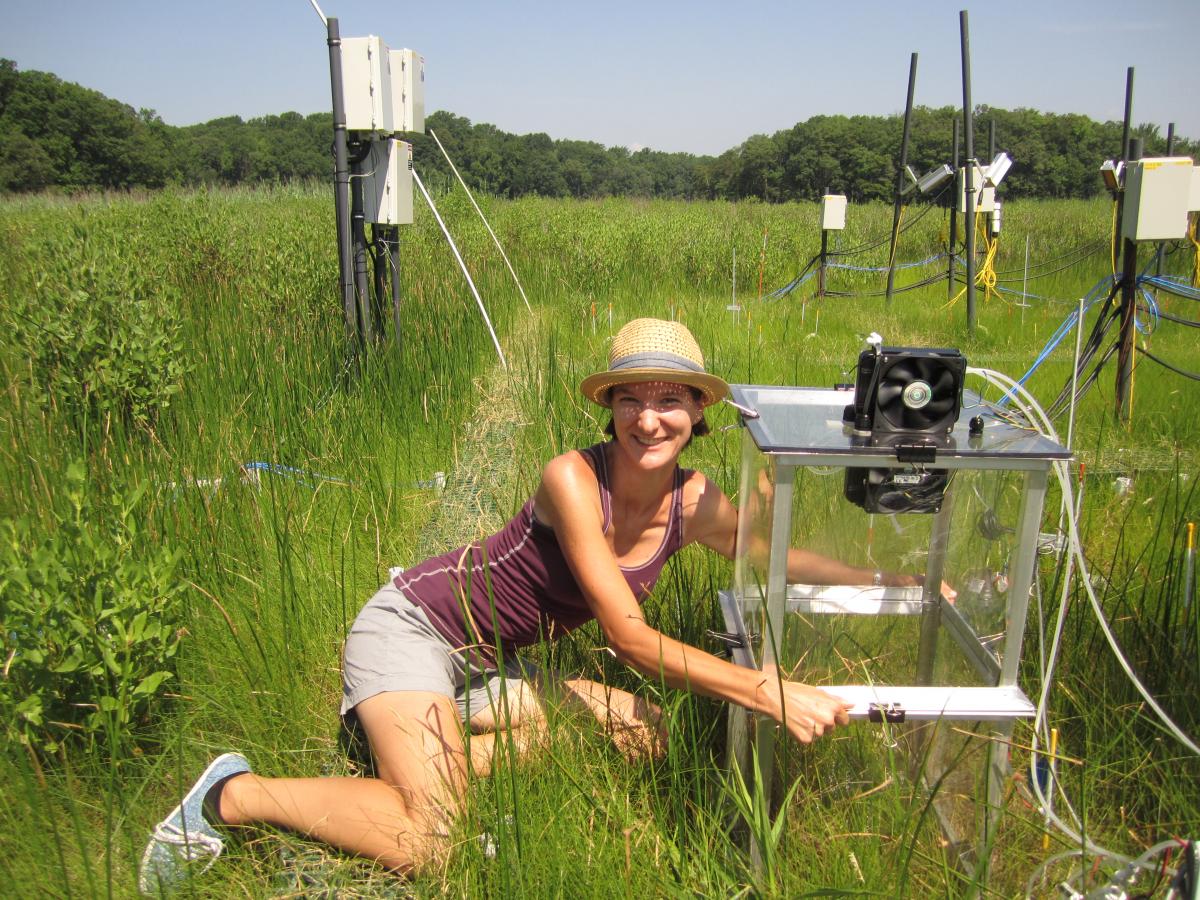Specialty
Ecosystem Ecology, Biogeochemistry, Soil Science, Wetland Ecology, Forest Ecology, Climate Change Science, Blue Carbon Science by Kristen Minogue

Soils don’t get much credit for their work powering the environment. Even among scientists, they’re routinely overshadowed by their flashier plant neighbors. But as the planet heats up, hidden soil microbes are on the verge of giving plant growth a serious boost.
However, there’s a hiccup in the system. In a new global warming study, ecologist Genevieve Noyce discovered soils and plants are just a couple degrees out of synch.
It boils down to one crucial ingredient: nitrogen. Plants need nitrogen to grow, so it’s a major component of most fertilizers. In the absence of fertilizer, plants get their nitrogen from soil microbes. But they’re at the mercy of supply and demand. In most environments on land today, soil microbes can’t produce nitrogen fast enough to meet plant demand.
In a futuristic experiment, Noyce and her colleagues baked patches of wetland soil to see if that would change in a warmer world.
Read full article on the SERC Shorelines blog
Research Labs
Biogeochemistry 
